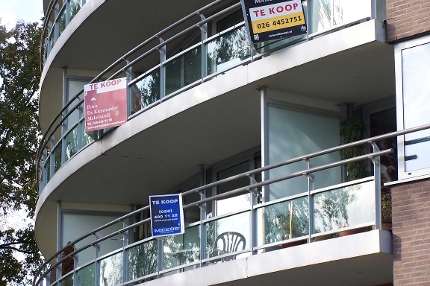You are willing to pay more for a house when it is cold

With a Veni grant, psychologist Hans IJzerman is doing research into the function of temperature and body temperature in social relations. And guess what he found? A cold environment changes a house into a real 'home'. After all, people associate cold with an intuitive need to be sheltered and with huddling together to keep warm. He also found that potential house buyers are prepared to pay more for a house when it is cold, and they want to realise the transaction quicker. Together with Bram van Acker, IJzerman recorded his findings in the article 'Homelike Thermoregulation: How Physical Coldness Makes an Advertised House a Home' that has been accepted for publication in a special issue about 'preregistration' in the Journal of Experimental Social Psychology.
People are a bit like penguins
Estate agents intuitively feel that each expression of 'warmth' ensures that a house is sold quicker. That is why an estate agent's office is always so snug and warm in winter. But is that the right approach to tempt potential buyers to place their signature? It does not seem to be the case.
IJzerman: 'We investigated the degree to which the need for protection among people influences their perception of houses that are sold through advertisements. In other words, what is the relationship between temperature, the need to be together, and the appreciation of the house? In two separate studies, we discovered that this influence is clearly present. People are a bit like penguins: cold drives them towards each other and increases the desire for contact with others. This subsequently leads to the need to find a "home" more than a house.'
It was already known that thermoregulation – an organism's ability to regulate its body temperature – influences how people view interpersonal relationships. Cold forces people and animals to seek each other out to share body heat, which is probably a universal and evolutionary need. Other research found that people want to watch romantic films as soon as it gets colder, for example.
Shelter from the cold
IJzerman: 'You want to huddle together. After all, it costs a lot of energy to keep yourself warm. The "closer" people are, the warmer they feel. As soon as people feel excluded, their peripheral temperature decreases. This is also the point at which the idea of looking for shelter comes up. The appearance of a house predicts a relatively new solution to an old problem: shelter from the cold.'
Two of the studies had 120 and 226 participants respectively. The participants were shown a picture of a typical terraced house with a neutral interior design. Subsequently, they were given the opportunity to classify the house with qualifications such as 'safe', 'trusted', 'a home', 'calming', 'private' et cetera. A lower ambient temperature or even holding a colder cup of water gave people a feeling of oneness with respect to the house: they saw it more as a real 'home', were prepared to pay more for it and were more willing to buy it. Neither the suggestion that participants could soon be inside nor the assessment of their own house yielded such an effect.
The researchers made use of research methods such as pre-registration – recording how the research would be performed in advance – and making the data publicly available via the Open Science Framework.
More information: Bram Van Acker et al. Homely Thermoregulation: How Physical Coldness Makes an Advertised House a Home, SSRN Electronic Journal (2015). DOI: 10.2139/ssrn.2576421
Journal information: Journal of Experimental Social Psychology




















